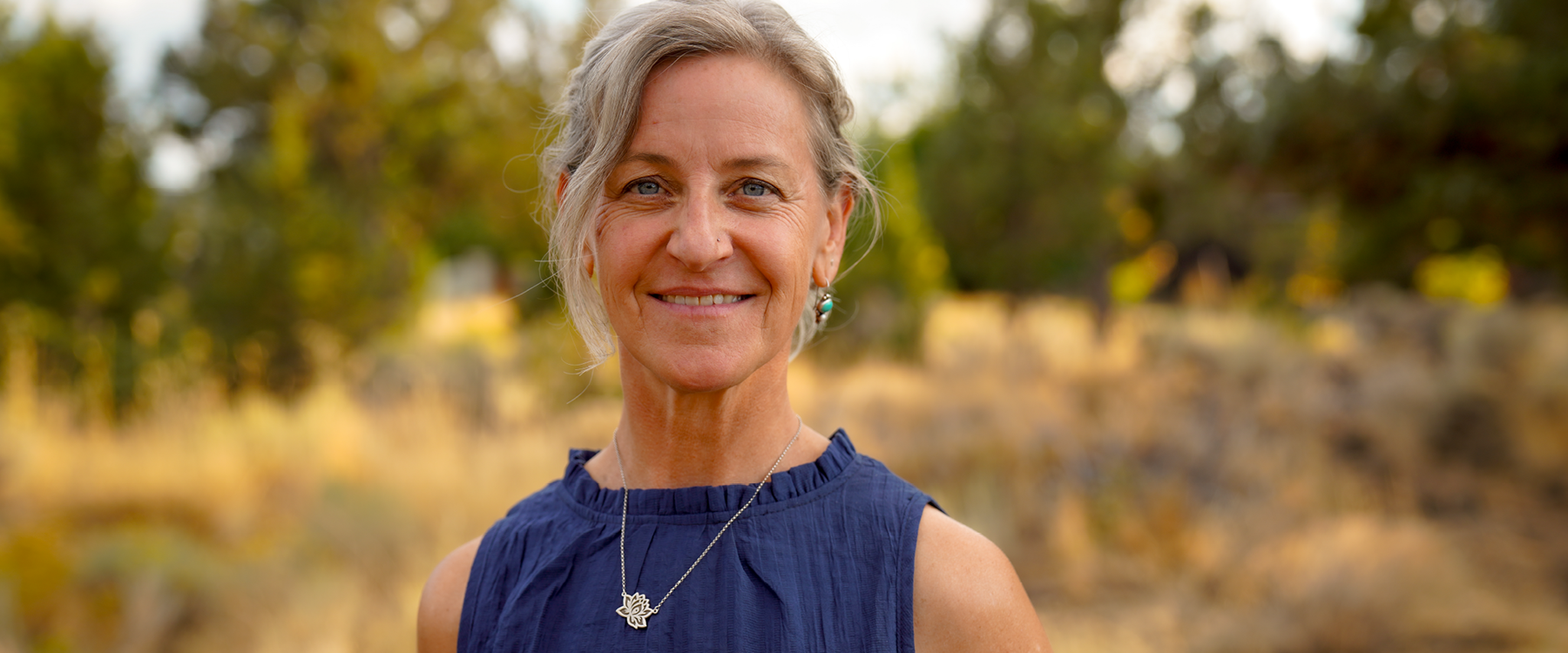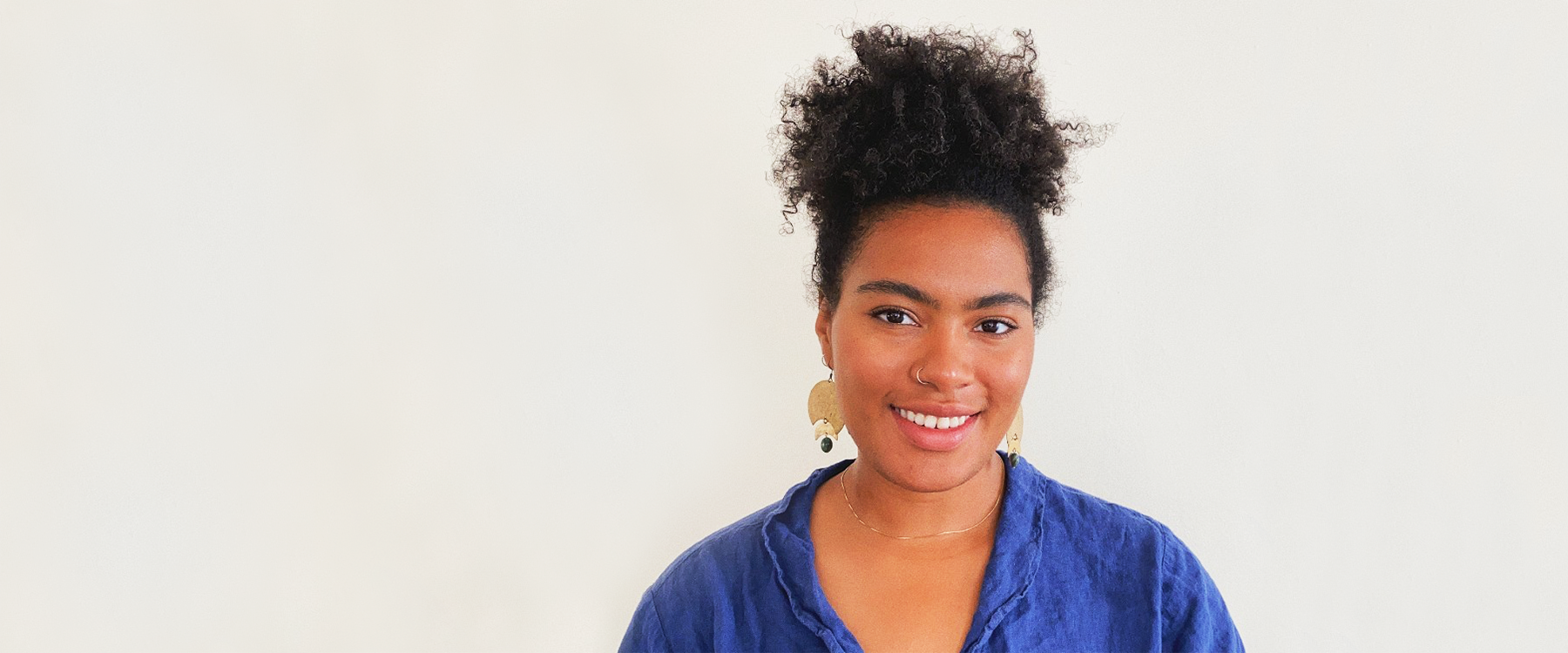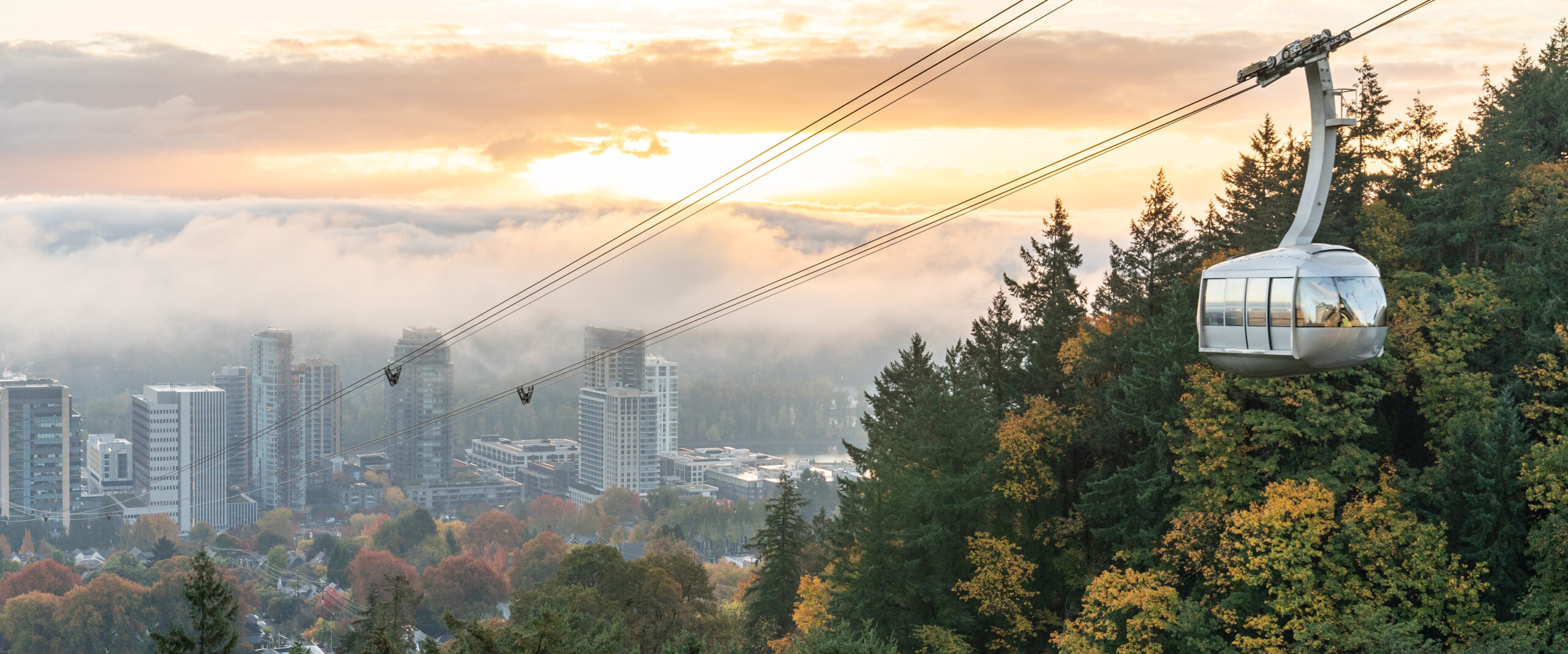OHSU School of Nursing alumna Erin Collins, M.N.E. ’23, RN, CHPN, chose to specialize in oncology and hospice nursing after witnessing the respectful end-of-life care hospice nurses provided her grandmother.
Over her 16 years as a hospice nurse, Collins observed that many of her patients were afraid, in denial and unprepared for death. She believed that if individuals discussed end-of-life plans “upstream” before they needed palliative or hospice care, it could ease their suffering and allay some of their fear. Her efforts to find a better approach to care for the dying led her to become an end-of-life doula, and in 2018, she and another former hospice nurse co-founded the Peaceful Presence Project (PPP).
The PPP is a nonprofit organization inspired by the Compassionate Communities’ model of care — a public health approach to palliative care that provides nonmedical community support for the seriously ill beyond the care administered by palliative and hospice medical teams.
“The Compassionate Community model is saying, ‘Death is a natural part of life. If we have these skills and show up for one another more, it will empower us to be present and to have more peaceful endings.”
Erin Collins
Collins says there are misunderstandings about the care provided by palliative teams, who help patients with serious illness maintain a quality of life, and hospice teams, who help patients with end-of-life care after their disease longer responds to treatment. Many patients and families mistakenly believe they will be provided an in-home nurse for eight or more hours each day after beginning hospice care. Hospice nurses provide regular visits, but cannot spend multiple hours caring for each patient.
“It’s not just health and social services that need to step in,” Collins says. “It’s all of our responsibility to support one another in the community during times of illness and loss.”
The in-person and online offerings provided by the PPP include classes and events to prompt discussions about illness and death, proactive and holistic advance care planning for individuals and families, training for end-of-life doulas and nonmedical community volunteers, and bedside support with end-of-life doulas.
The PPP is headquartered in Bend, Oregon, but regularly receives requests for support from patients beyond their service area. Joe Zaniker emailed Collins last winter when he had difficulty finding a local doula to help his mother and their family in The Dalles, Oregon.
Zaniker told Collins that his mother was in the end stages of breast cancer, a prevalent family illness. She had witnessed other family members die from the disease and did not want a painful death. Zaniker told Collins that his mother wished to use medical aid in dying (MAID).
Collins met with Zaniker, his mother and other family members several times via phone and video calls, describing the process of MAID and answering questions and concerns. Zaniker’s mother chose a date to take the medications that would end her life and continued to meet with family members and friends to say goodbye. On the date selected, Collins drove two and a half hours to The Dalles.
“We watched Erin and Mom connect,” Zaniker says. “It was one of the most profound things I’ve ever seen.”
Collins says, “I had the gift of spending just four hours with them that day — privy to family stories, and love and goodbyes.”
Collins remained with the family after their mother died, sharing a meal and providing comfort and support. Zaniker later told Collins that her care “felt like love in motion.”
End-of-life patients in rural areas of Oregon struggle to find support. Hospice nurses may drive up to an hour traveling from one patient to another, and in some parts of the state, no hospice care is available. This spring, the PPP received funding to train end-of-life doulas to serve throughout rural Oregon. A 15-member cohort was selected from 77 applicants. Two additional cohorts of trained doulas will serve in eastern and southwestern Oregon.
The PPP also provides trainings for community members who do not want to become doulas but wish to provide other end-of-life assistance for their neighbors. Many seek these trainings after receiving support themselves during the death of a loved one.
“Historically, people knew how to take care of one another during birth and during death. Those were community or social events,” Collins says. “Now it’s more of a medical event. And we’ve lost the social component of these human experiences.”
After receiving training, community members work in partnership with hospice to help isolated patients with their household tasks, chores and other needs. Community members have also been trained to listen and provide a safe space for patients to talk about their end-of-life concerns.
“The Compassionate Community model is saying, ‘Death is a natural part of life,’” Collins says. “If we have these skills and show up for one another more, it will empower us to be present and to have more peaceful endings.”
The PPP plans to support patients and health care providers by creating an online, statewide directory of end-of-life doulas, community health workers with palliative care training, community-based serious illness support volunteers and anyone who has been vetted or received training through the PPP. Once launched, the PPP will be notified when directory members’ services are requested so they can find an alternate provider if there has been no response within 48 hours.
Collins’ ultimate goal is to make Oregon a national leader and exemplary model of the Compassionate Communities concept of care, and she believes the PPP must work in partnership with health care systems to be successful. She sees a possibility for OHSU to become involved by connecting residents serving in rural clinics with community health workers and doulas working in end-of-life care.
Collins says that her work is not focused on death but on humanity. “It’s pretty incredible — the human relationship. When you get to be truly present with someone in these spaces, it’s really powerful.”




